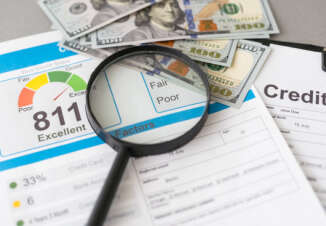The content on this page is accurate as of the posting date; however, some of the offers mentioned may have expired.

Creditors these days have a new way of ensuring the trustworthiness of their customers. Credit tracking is essentially a way of keeping track of a person's past financial record be it loan requests, payments, bank statements etc. This is believed to show up any unfavorable behavior traits that people might employ while paying back loans.
What started as just a novel way of keeping track of customers has fast blossomed into a prerequisite for loan sanctions and other financial deals. The Bad credit history or adverse credit history may just about prevent a bank from sanctioning a loan. The Bad credit history or sub- prime history is computed by credit bureaus and consumer reporting agencies. These agencies put together reports based on details that creditors and money lenders provide. These details are mainly accounts of their relationship with the customer.
The credit score: A tracking device
The credit score is the essence of the Credit history. The score will tell if a person is a trustworthy customer or otherwise. The credit score is a mathematical algorithm that denoted, in numerical value, the "creditworthiness" of a person. They employ a statistical method to gauge the financial risk of money lending to a particular person. The higher the score, the greater the probability that the person will repay the loan. An interesting feature of the credit score is that the score dips every time a money lender makes an enquiry of that particular score. This is so, as frequent enquires indicate that the person under consideration is in a financial difficulty judging from the number of money lenders he/ she has approached.
Dual Histories
A person can, however, have more than one credit history. The second Credit history may not add anything substantial to the record provided by the first. For example, people applying for a loan before acquiring a Social Insurance Number (SIN) have two credit histories, one recording their financial dealings before the Social Insurance Number and one recording the financial dealings after acquiring the Social Insurance Number. The credit history itself only applies to one country. Credit Histories are not shared between countries, even if they belong to the same credit card network. A person migrating from one country to the other has to start afresh.
There are three main credit bureaus that keep track of the customers' payment histories and other critical financial data. The bureau keeps a record of customer dealings and statements of payments made. These records are made available to non financial companies as well, such as housing Finance companies and credit card agencies. The Credit Information Bureau makes the information available through a credit references. Bureaus also provide references about individuals whereas Credit rating Agencies provid information about bigger players such as companies etc.
Financial consultants offer advice on how one can better a bad credit history. For one, timely payments on loans taken help better bad records. Bankruptcies must be avoided at all costs.





